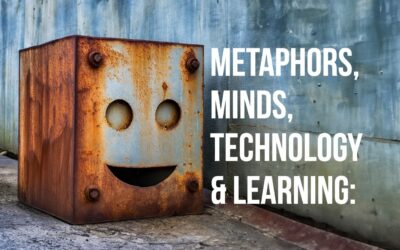Two interesting articles about religions and magical thinking. The first from the Economist is about how scientists are attempting to explain religion in evolutionary terms. As the article says, “religion cries out for a biological explanation,” though previous attempts have not been very successful. However, it looks like that may be changing – as scientists from a range of disciplines (psychology, neuro-biology, evolutionary theory, and economics among others) are beginning to work together to unravel the mysteries of religion. This article provides a nice overview of some of the more intriguing recent findings in this area. The entire article is well worth reading, The science of religion, Where angels no longer fear to tread. That said, I can already see the criticisms piling up, and to be fair, none of these studies capture or in anyway explain the personal aspects of the “nature of religious experience.” The second article from Psychology Today explores Magical Thinking. As the articles says, “We look for patterns because we hate surprises and because we love being in control.”
It seems to me that these two articles provide a rather arguments for why we need to be skeptical about our own perception and thinking and really need to go beyond taking things at face value.
On a side note, I will be visiting three different sections of CEP240: Diverse Learners in Multicultural Perspectives, next week, for a discussion on religion (or lack thereof) with Father Mark Inglot (of St. John Student Parish). Father Inglot and I have appeared together many times for similar events, typically for large class meetings (so these small group sessions will be a first). I have greatly enjoyed our discussions, despite our extremely divergent views. I am looking forward to these sessions… which may be videotaped for future use. I will try and post these videos here (if I can get my hands on them).





I think you may be hinting on a big lacuna between the scientific study of spirituality.
Actually, most scientists completely confuse between the limiting concept of religion and the unrestricted search for truthfulness (what I prefer to call dharma). A religion is one in which there also is a denial of other paths or other people’s paths (indicating – there is a also a complete blockage of any neural pathways that can think out of the box to tackle the discontent that all of us feel, because one cannot think beyond what others have defined for oneself).
OTOH, a dharma makes no such differentiation, is fully open to switching to other pathways and may even invent new neural pathways. Trans-boundary inquiry is the substance of dharma, the adulation of a god defined by others is the nature of religion, and sadly, most scientific studies only focus on religion – because they don’t know any better.
Also, it is too simplistic to say that a certain prophet got visions because he was epileptic and had TLE. Firstly we still have no clue on what causes epilepsy (if we did, we would be able to cure it and not just drug the hell out of it. This labeling/categorization is one of the hidden frauds in science, naming something makes it look like we understand what is happening. Like the mental illnesses defined in the DSM – describing a behaviour and giving it a name makes people think its been understood. Like calling an unexplained death of a child by a scientific sounding name like SIDS, instead of telling parents, “guys, we have just no clue on why your baby died, and we claim to practice the advanced science of medicine”. See, “science” covers its own ignorance in precisely the same way as religion).
To explain one unexplained phenomenon by another unexplained phenomenon and calling it a scientific evaluation, is quite the perversion of science.
On visions – to give an example from Sagan’s Cosmos, the alien intelligence speaks to the lady astronaut (I forget her name), in the form of her own father. Very valid. In reality, language is a construction of symbols – if the father’s image communicates what the brain wishes to communicate, then it is only an advanced form of language.
(I mean, didn’t most known scripts evolve directly or indirectly from pictures and pictograms).
And, why should a vision be considered anything different from a sentence? When we say that a picture is worth a thousand words, is it not possible that the patterns of our brain are transcending the limits of language when we see a vision? (IMO, Jung’s concept of active imagination could be looked at as an underlying basis to form better models of the phenomenon).
Why deny whatever the mind does, to iron out its own inconsistencies and improper conditionings? Why is religion only about God, and when will scientists begin to realize that the search for truth is first and foremost the urge to integration of the self on only later about God? I’d say, for science to study religion as being connected to a predefined concept of God, is as grossly incorrect as defining science as that which happens in laboratories.
Its a lot lot lot more than that.